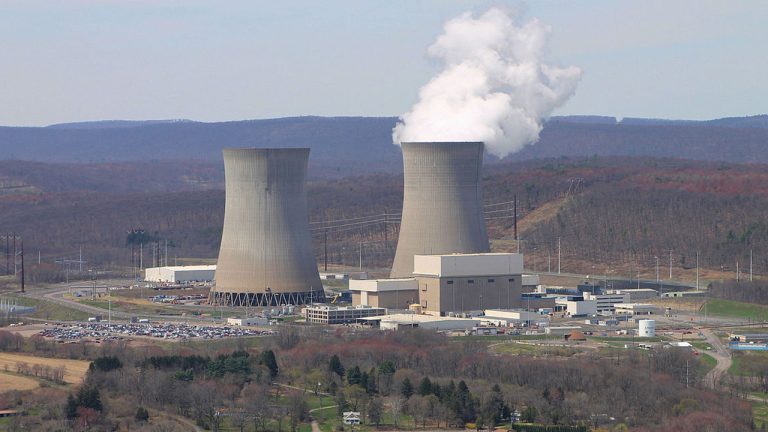 Researchers Murray A. Rudd, Matthew Jones, Daniel Sechrest, Daniel Batten, and Dennis Porter have unveiled a new study showcasing a cutting-edge framework that fuses landfill gas-to-energy (LFGTE) systems with bitcoin mining. This innovative strategy is designed not only to combat methane emissions but also to unlock new economic opportunities. Study Merges Landfill Gas-to-Energy Systems With […]
Researchers Murray A. Rudd, Matthew Jones, Daniel Sechrest, Daniel Batten, and Dennis Porter have unveiled a new study showcasing a cutting-edge framework that fuses landfill gas-to-energy (LFGTE) systems with bitcoin mining. This innovative strategy is designed not only to combat methane emissions but also to unlock new economic opportunities. Study Merges Landfill Gas-to-Energy Systems With […] Bit Digital, Inc. has shared an update on its journey into artificial intelligence (AI) services by securing a binding term sheet with Boosteroid Inc., a major player in the cloud gaming industry. This partnership highlights Bit Digital’s strategic direction, which focuses on enhancing its AI capabilities through its existing digital asset mining infrastructure. Bit Digital […]
Bit Digital, Inc. has shared an update on its journey into artificial intelligence (AI) services by securing a binding term sheet with Boosteroid Inc., a major player in the cloud gaming industry. This partnership highlights Bit Digital’s strategic direction, which focuses on enhancing its AI capabilities through its existing digital asset mining infrastructure. Bit Digital […]
Energy Web CEO Jesse Morris explains why blockchain can make “going green” more efficient, how fighting climate change is easier, and why Energy Web is building on Polkadot.
This summer, parts of the United States are wilting under a multimonth stretch of sweltering heat, and data suggests that summer temperatures will continue to creep up in the coming years. The planet is on what seems to be a pretty clear path to soon reaching 1.5 degrees Celsius of warming for the first time since the preindustrial era, a milestone number that the world’s countries pledged to try to remain under in the 2015 Paris Agreement.
Humanity’s continued burning of fossil fuels combined with the return of the El Niño weather phenomenon has created a dangerous cocktail of rising temperatures that have been breaking records all around the world. In fact, July 6 was the world’s hottest day ever recorded — and possibly the hottest day in 100,000 years — with the month of July on track to be the hottest in recorded history.
Scientists say that short of drastic and monumental geoengineering projects, the only way to prevent the planet’s warming from remaining under 1.5 degrees Celsius is to rapidly phase out and ultimately stop the burning of fossil fuels. But modern society requires massive amounts of power to operate, so where will all that energy come from if fossil fuels are no longer practical?
The answer, according to organizations like Energy Web, lies in clean energy, or energy that does not release greenhouse gasses into the atmosphere.

On Episode 15 of The Agenda podcast, hosts Jonathan DeYoung and Ray Salmond speak with Energy Web CEO Jesse Morris about his views on climate change, decarbonization and how blockchain technology can help facilitate the move to clean energy.
A particular highlight from the conversation was Morris’ comment that it’s the economics of the climate change industry that need adjustment. Morris said:
“Let’s just make it so that all these technologies that can help us decarbonize are cost-effective, and businesses will just adopt them.”
Of course, it’s slightly more complex than that, but according to Morris:
“One of the big overarching challenges is we just need our electricity to be green. And one of the ways we can make the electricity to be more green, the entire electric system, is to take this concept where, let’s say we have all of these different technologies that I was talking about earlier: electric cars, batteries, solar systems, heat pumps.”
In Morris’ view, better public policy messaging couched in digestible data and a more reasonable approach to governments’ climate change and environmental preservation objectives are needed. Morris said the first step is to “electrify everything” and:
“We have all those assets out there, which is kind of a naturally decentralized, distributed landscape with all of these assets that are out there. If we can network those things together digitally and basically use those to actually balance the grid instead of these big natural gas or coal-powered facilities, that’s a really efficient way to manage the electricity system — basically telling all of those different batteries and electric cars precisely when to and when to not use electricity. It’s kind of like a big distributed, decentralized battery that’s a really efficient and incredibly economically powerful tool for balancing the grid.”
Related: How blockchain technology and DeFi could help solve the housing crisis
Given the fact that environmentally friendly solutions are already in existence and ready to roll out, both DeYoung and Salmond were curious about the actual role and need for blockchain in these technologies. Morris explained that after six years of building and trialing different solutions, Energy Web honed in on “Green Proofs’ as the primary solution with a good product-to-market fit.
Green Proofs have applications ranging from green biofuels to Bitcoin (BTC) miners using only renewable and green energy and tracing how green the materials were that came in to create a battery.
According to Morris, “Blockchain plays a pretty key role. We use blockchains to actually represent those assets.”
“So basically, if I’m a fuel producer, I log in, I register, I upload data. An on-chain representation of that data is then used and can be moved around that ecosystem to sort of track who owns the digital certificate representing that unit of green fuel, for example.”
To hear more from Morris’ conversation with The Agenda, listen to the full episode on Cointelegraph’s Podcasts page, Apple Podcasts or Spotify. And don’t forget to check out Cointelegraph’s full lineup of other shows!
Magazine: Tokenizing music royalties as NFTs could help the next Taylor Swift
This article is for general information purposes and is not intended to be and should not be taken as legal or investment advice. The views, thoughts, and opinions expressed here are the author’s alone and do not necessarily reflect or represent the views and opinions of Cointelegraph.
 While bitcoin’s effect on the environment has been discussed at length over the last two years, the latest trend of artificial intelligence (AI) software is now being criticized for its carbon footprint. According to several headlines and academic papers this year, AI consumes significant electricity and leverages copious amounts of water to cool data centers. […]
While bitcoin’s effect on the environment has been discussed at length over the last two years, the latest trend of artificial intelligence (AI) software is now being criticized for its carbon footprint. According to several headlines and academic papers this year, AI consumes significant electricity and leverages copious amounts of water to cool data centers. […] On Tuesday, the bitcoin mining company Cleanspark announced that it had purchased 45,000 Antminer S19 XP bitcoin mining devices for a total price of $144.9 million. Cleanspark stated that the new fleet would add 6.3 exahash per second (EH/s) of computational power to the company’s current 6.7 EH/s. Cleanspark Acquires 45,000 Bitmain Antminers for $144.9 […]
On Tuesday, the bitcoin mining company Cleanspark announced that it had purchased 45,000 Antminer S19 XP bitcoin mining devices for a total price of $144.9 million. Cleanspark stated that the new fleet would add 6.3 exahash per second (EH/s) of computational power to the company’s current 6.7 EH/s. Cleanspark Acquires 45,000 Bitmain Antminers for $144.9 […] Meta, the social media company, will continue to shed part of its workforce, recently announcing 10,000 new layoffs to be executed during 2023 as part of its new efficiency policy. Mark Zuckerberg, CEO of the company, stated that artificial intelligence (AI) was currently the company’s most prominent investment, even over the metaverse. Meta Announces 10,000 […]
Meta, the social media company, will continue to shed part of its workforce, recently announcing 10,000 new layoffs to be executed during 2023 as part of its new efficiency policy. Mark Zuckerberg, CEO of the company, stated that artificial intelligence (AI) was currently the company’s most prominent investment, even over the metaverse. Meta Announces 10,000 […] Environmental, social, and governance (ESG) analyst Daniel Batten said Tuesday that the computational backbone of the Bitcoin network now uses 52.6% sustainable energy. Batten and onchain analyst Willy Woo created Dynamic Bitcoin ESG Charts to showcase the protocol’s progress. Contrary to Cambridge University Data, Analyst Says Bitcoin Mining Uses 52.6% Sustainable Energy These days, there […]
Environmental, social, and governance (ESG) analyst Daniel Batten said Tuesday that the computational backbone of the Bitcoin network now uses 52.6% sustainable energy. Batten and onchain analyst Willy Woo created Dynamic Bitcoin ESG Charts to showcase the protocol’s progress. Contrary to Cambridge University Data, Analyst Says Bitcoin Mining Uses 52.6% Sustainable Energy These days, there […] Terawulf, a bitcoin mining operation, has announced that it has energized the first nuclear-powered bitcoin mining facility in the United States at the company’s Nautilus Facility in Pennsylvania. According to the company, approximately 1 exahash per second (EH/s) or close to 8,000 application-specific integrated circuit (ASIC) bitcoin miners are now online, and another 8,000 mining […]
Terawulf, a bitcoin mining operation, has announced that it has energized the first nuclear-powered bitcoin mining facility in the United States at the company’s Nautilus Facility in Pennsylvania. According to the company, approximately 1 exahash per second (EH/s) or close to 8,000 application-specific integrated circuit (ASIC) bitcoin miners are now online, and another 8,000 mining […]
Blockchain’s transparency and traceability can aid sustainability and reduce carbon emissions for climate change.
With rising temperatures, melting ice caps and more frequent and intense extreme weather events, the effects of climate change are becoming more and more obvious. There is an urgent need to prevent climate change, and numerous technologies and methods are being investigated to do so. Blockchain technology is one of these possibilities, and it has the potential to be very effective in the fight against climate change.
At its core, blockchain is a decentralized ledger that can securely and transparently record transactions and store data. This technology has already been used in a variety of applications, from cryptocurrency to supply chain management. However, its potential applications in combating climate change are still being explored.
Here are a few ways in which blockchain can help combat climate change.
Bring it on, Global Warming!
— Cointelegraph (@Cointelegraph) November 11, 2021
The United Citizens Organization launched an initiative during Cop26 to help combat climate change with blockchain technology. https://t.co/4FPlyHP2qb
The creation and administration of carbon credits is one way that blockchain technology can help fight climate change. A tradable permit called a “carbon credit” permits the holder to emit a certain amount of greenhouse gases, such as carbon dioxide. To reduce their emissions, businesses and organizations can buy carbon credits, which can be traded on a market.
The management of carbon credits may become more transparent and effective with the use of blockchain. All carbon credit transactions can be tracked in real-time and documented using a decentralized ledger. By doing so, fraud can be avoided, and the intended use of carbon credits can be guaranteed.
The management of carbon credits may become more transparent and effective with the use of blockchain. All carbon credit transactions can be tracked in real-time and documented using a decentralized ledger. By doing so, fraud can be avoided, and the intended use of carbon credits can be guaranteed.
By establishing a decentralized energy infrastructure, blockchain technology can also encourage the adoption of renewable energy sources. Without the aid of a centralized organization or utility company, people and companies can buy and sell renewable energy directly from and to one another using a decentralized energy grid. This can support the adoption of renewable energy sources, such as solar and wind power, and lessen dependency on fossil fuels.
Related: Bitcoin miners as energy buyers, explained
Supply chain management is another area where blockchain technology is being used to tackle climate change. Businesses can find opportunities to lower their carbon footprint and make more sustainable decisions by utilizing blockchain to track the carbon footprint of products and materials across the supply chain. By promoting sustainable production and consumption practices, greenhouse gas emissions can be significantly reduced.
The monitoring and reporting of carbon emissions from numerous sources, such as businesses, vehicles and structures, can also be done using blockchain technology. Governments and organizations can more precisely measure and report on their emissions and monitor progress toward their emission reduction targets by utilizing a decentralized ledger to track emissions.
Related: Carbon market gets a much-needed boost from blockchain technology — Web3 exec
Using blockchain technology to address climate change is not without its difficulties and restrictions. The requirement for standardization and compatibility is one obstacle. Blockchain needs a uniform set of rules and protocols that all stakeholders can agree upon in order to manage carbon credits and track emissions effectively.
The scalability of blockchain technology presents another difficulty. Many blockchain networks currently only have a modest amount of capacity and can only process a small number of transactions. If blockchain is widely utilized to manage carbon credits or track emissions, this might become a bottleneck.
Last but not least, there are issues with the energy usage of blockchain technology. Some of the environmental advantages of adopting blockchain to fight climate change may be outweighed by the energy consumption necessary for blockchain transactions.
Although blockchain technology is still in its infancy in terms of adoption and development, its prospective uses in halting climate change are promising. Blockchain can hasten the shift to a low-carbon economy by enhancing transparency, efficiency and accountability in regulating carbon emissions and encouraging sustainable practices.
Yet in order for blockchain to be successful in addressing climate change, there are also difficulties and constraints that must be overcome. Ultimately, a combination of technologies and solutions will be required to address the complex and urgent challenge of climate change.

The NFT marketplace Sparkles launched on the layer-1 EVM oracle platform Flare for interoperable protocols to expand use cases for NFTs and their holders.
Flare, the layer-1 Ethereum Virtual Machine (EVM) blockchain, went live on Jan. 10 after it launched two core protocols for decentralized interoperability applications. The blockchain network allows developers to create applications that are interoperable between various blockchain ecosystems and internet platforms.
Less than one month later, on March 2, Flare welcomed the nonfungible token (NFT) platform Sparkles on its layer 1 oracle network.
According to the announcement a primary goal of the Sparkles NFT platform is to hone in on the interoperability of native Flare protocols to increase use cases for NFT utility.
The NFT platform has plans to target other major issues in the space such as intellectual property (IP) rights via attaching on-chain IP licensing to future collections. Sparkles also has plans of decentralizing its core technology and infrastructure after it transitions into a DAO.
Since its launch on Songbird, the canary network for Flare, in Jan. 2022, Sparkles has handled 90% of NFT sales, which accounts for $3.5 million in sales. It currently hosts over 3,200 collections.
Related: New oracle system to help DApps retrieve millions lost to MEV
Additionally, in 2021 Sparkles joined the Crypto Climate Accord with a pledge to become net-zero by 2023. The platform reports to have achieved an environmentally positive status via carbon credits, which it retired on-chain via the Toucan bridge.
Interoperability is a big theme for the decentralized space going forward in 2023. It is one of the major focuses of many companies and communities in the space to help with scalability and onboarding more users. New tools like trustless bridges have been implemented in order to create safer options for the implementation of interoperable solutions.
The Web3 Domain alliance recently expanded with an addition of 51 new members, after which it named interoperability as one of its main focuses for the year.